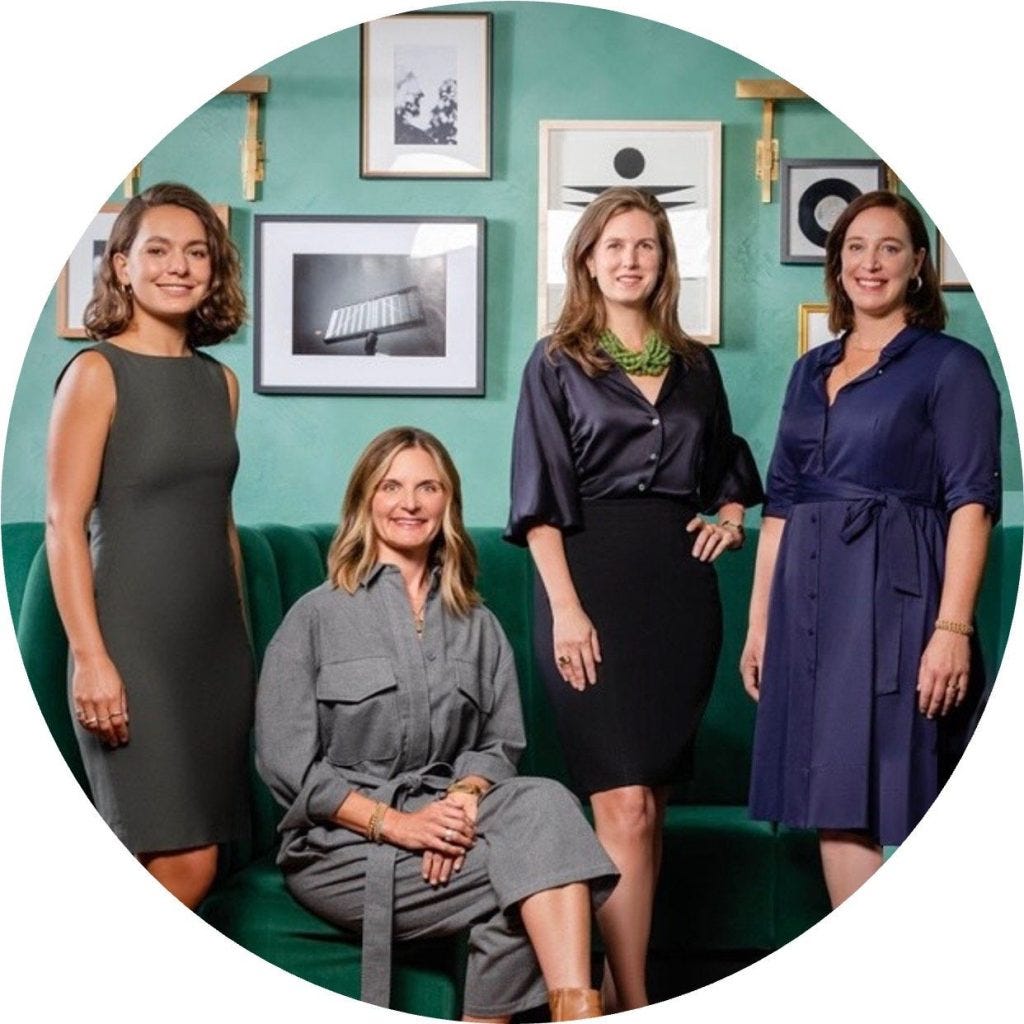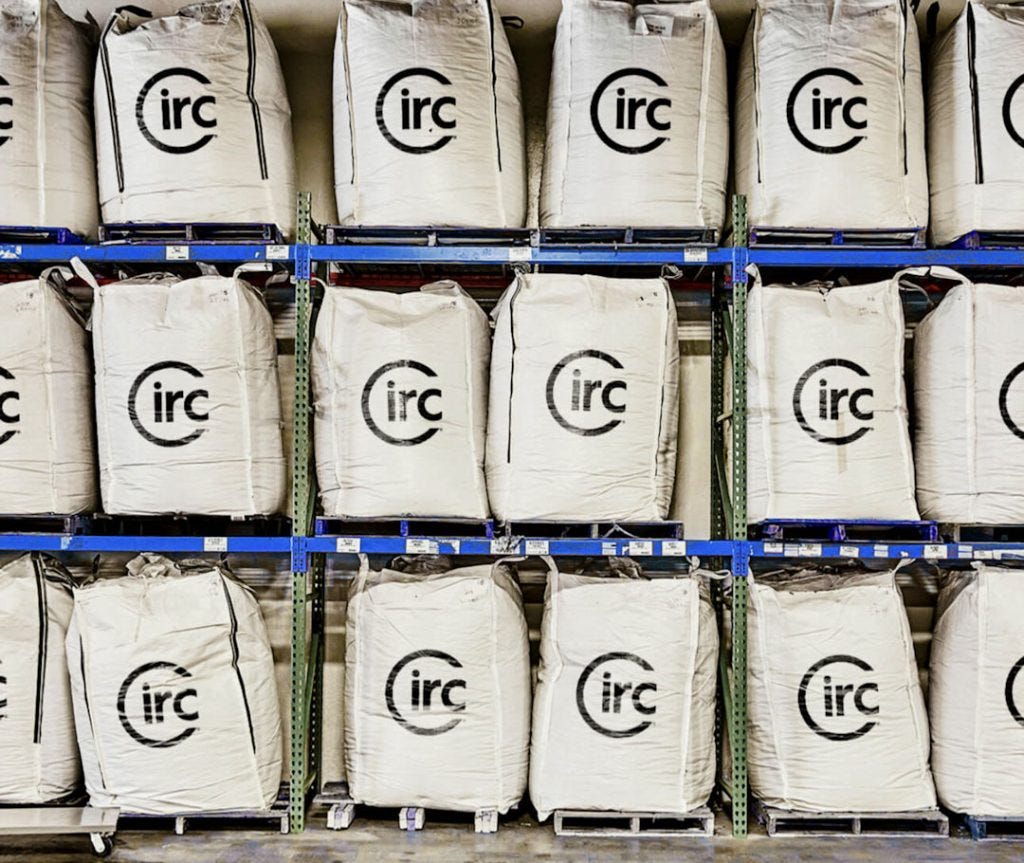This is part of our series spotlighting some of Third Nature’s best-in-class fund managers. Check out the series intro here and our Q&A with Trailhead here.
Today, we’ll be spotlighting another one of our fantastic partner funds: Alante Capital.
Just as the industrial food system has long been defined by harmful practices and unsustainable models, the fashion and apparel industry faces similar systemic challenges. From resource-intensive production to widespread waste and pollution, the sector’s environmental and social impact is immense. While a growing number of innovators are working to disrupt these entrenched systems, the capital needed to scale their solutions remains scarce.
Since 2017, Alante Capital has been at the forefront of addressing this gap, backing entrepreneurs who are reimagining the future of fashion. Their portfolio spans critical areas such as textile recycling, next-generation materials, and circular business models—supporting incredible companies like Circ, which is pioneering textile-to-textile recycling, returning clothes to the raw materials from which they were made. We first connected with the Alante team through our evaluation of Sway, an innovative seaweed-based plastics company in which they played an active investment role. Their approach aligns with our belief that finance can be a catalyst for systemic change, making them a natural partner in our shared mission.
Please see below a conversation we had with Alante Capital’s Managing Partner, Karla Mora.
Tell us about your firm and investment thesis.
I’m the Managing Partner of Alante Capital, a venture capital fund that focuses on modernizing and building resilience in the fashion, home goods, and outdoor industries. Our firm invests in early-stage companies that drive efficiency, circularity, and carbon reduction within these critical consumer industries. Our investment thesis revolves around finding and supporting innovations in deep tech, material science, AI, and enterprise SaaS, specifically those with clear commercialization pathways that offer both financial returns and significant environmental impact.
Why have you chosen to focus on fashion and home goods? What challenges are you seeking to address?
I was an economist turned investor, passionate about supply chain reform and innovation that would protect land and labor in the production of the everyday items we consume. Leslie was an investment banker passionate about international development, impact investing, and fashion. We were both systems thinkers with keen abilities to read and understand people, see opportunity and track connectivity to the broad market dynamics–when we met in 2016, our experiences and interests aligned to launch Alante Capital the next year.
We strategically chose to focus on the fashion industry because it is not only central to daily life but also faces significant environmental and economic challenges that urgently require innovation. For Fund II we chose to expand into the home goods and outdoor industries because they similarly shared historically complex and inflexible global supply chains and were seeing shifts in consumer behavior, increased climate risks, and geopolitical instability. Here are some industry statistics that may surprise you:
Fashion alone accounts for 10% of global carbon emissions, surpassing emissions from international flights and maritime shipping combined
60% of virgin PET plastic is used in polyester textile fiber, but recycling synthetic textiles is still not commercially viable
150 billion garments are produced globally each year, with approximately 20% never being sold, resulting in $150 billion in lost revenue annually
U.S. companies spend $50 billion annually on managing returns in apparel
66% of executives in the sector identify geopolitical instability as a top risk to growth
Extreme weather is anticipated to cost the global fashion industry $65 billion by 2030
These statistics can feel overwhelming, and they are just a small snapshot of the problem, however, we have seen promising early-stage innovation that can address these issues and build supply chain resilience in these industries.
How do you take a systems lens to the funds investing?
Alante takes a systems lens to investing by evaluating the entire value chain within the fashion, home goods, and outdoor industries—from design and production to distribution, sales, use, and waste recovery. Rather than focusing on individual consumer brands, the firm targets innovations that all brands can use and that can drop into existing supply chains to transform how products are made, sold, used, and recovered. This holistic approach enables us to address inefficiencies and environmental impacts at multiple stages of the lifecycle by backing low-carbon and biobased materials, optimized product design and production software, recommerce tools, and recycling innovation, among other technologies. By leveraging deep industry expertise and ecosystem connectivity, Alante identifies opportunities that can create widespread, systemic change across industries.
Where do you glean strategic insights to fuel your investment approach and priorities?
Our industry specialization is core to our strategy. By being deeply embedded in our industries for nearly a decade, our vast global network of retailers, brands, and manufacturers, help us source, select, and scale the best companies. We take time to meet, listen and partner with stakeholders across the supply chain to understand their economic and environmental challenges. As a team, we think creatively and critically about what a promising solution would look like and seek entrepreneurs that similarly have worked to truly understand and address critical industry pain points. While we invest to drive circularity and reduce emissions, we believe that innovation needs to be high performance, price competitive, and scalable to truly drive adoption.
Could you tell us about 2-3 of your portfolio companies and how these are positioned within the sector/system you're investing in?
Circ addresses the millions of tonnes of textile waste produced annually by recycling traditionally difficult to process polycotton textile waste. Circ uses a chemical recycling technology to create high-quality polyester and man-made cellulosic fibers that can drop into existing textile supply chains.
Fitmatch.ai uses AI and machine learning to reduce apparel returns. Apparel returns result in millions of items going to landfill, a massive environmental and economic cost. FitMatch AI provides highly accurate virtual fitting experiences, so that customers buy the right item, the first time.
Retraced offers a digital platform for apparel brands to trace and verify the sustainability and compliance of their supply chains. Their software helps improve transparency, reduce risk, and drive more sustainable practices in the fashion industry.
Stay tuned for our next Q&A with Desert Bloom Food Ventures. And be sure to follow us on LinkedIn and Substack for all the latest company updates and insights!












